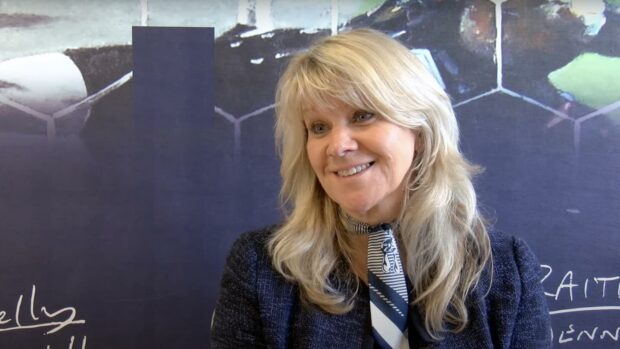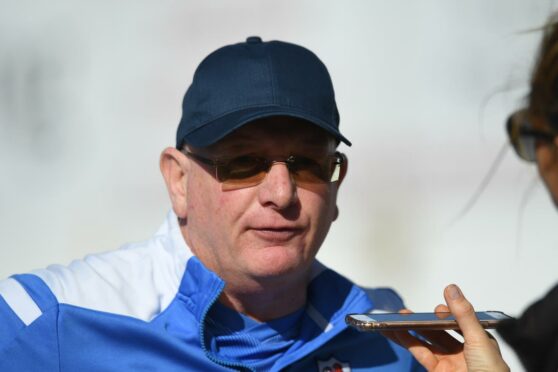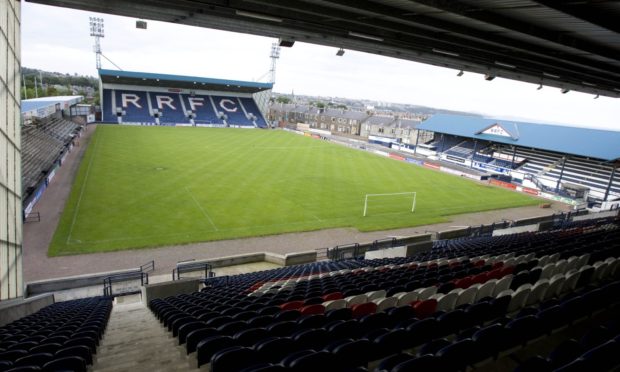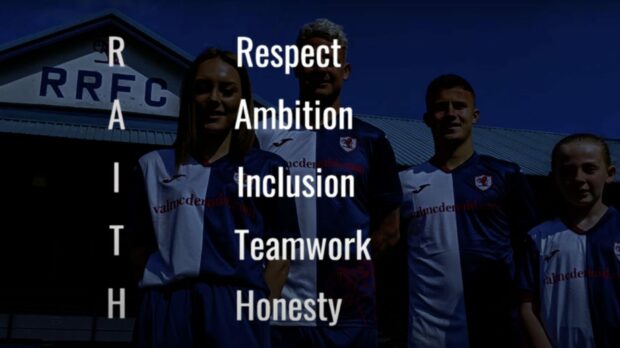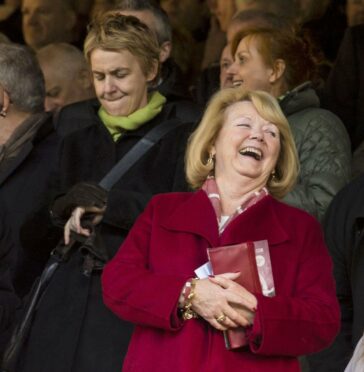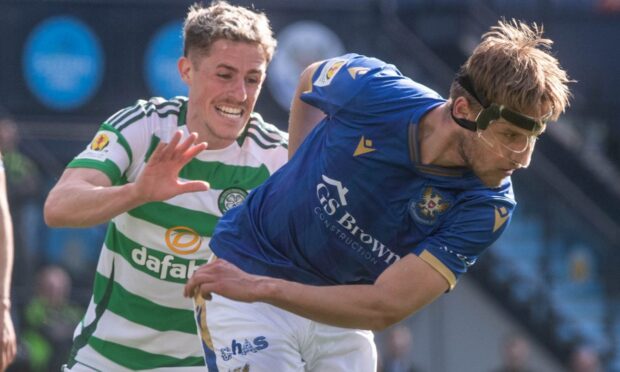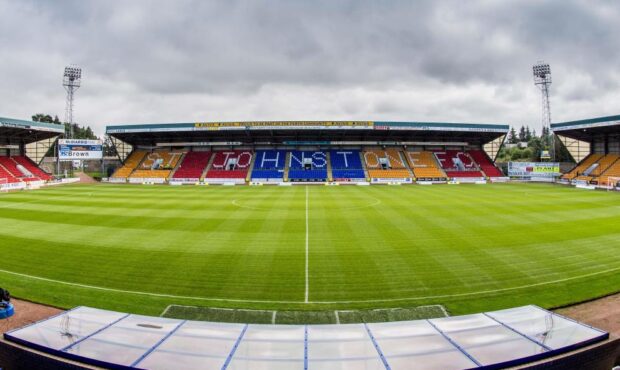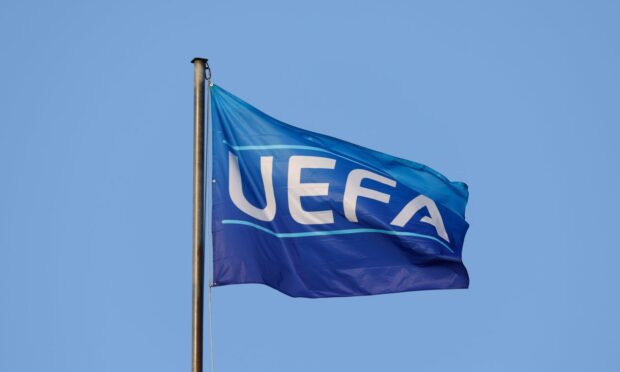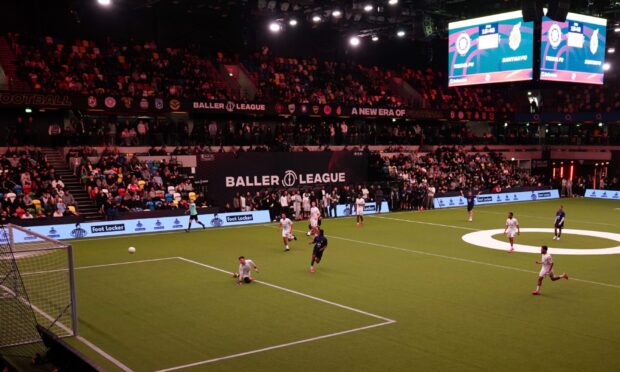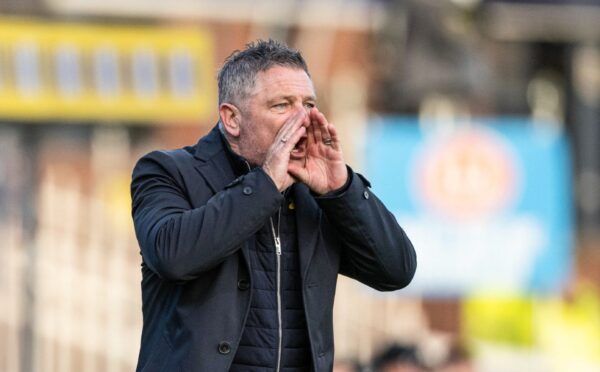Karen Macartney has never been afraid to jump in at the deep end.
After all, her nascent talent as a schoolgirl athlete saw her swim for Scotland.
Performing at an international level at the age of 11, she competed from Geneva to beyond the Iron Curtain.
“I was part of the squad for a Six Nations competition in Switzerland and went to West Germany — it was so many years ago, that the Berlin Wall hadn’t come down yet!” Raith Rovers’ chief executive tells Courier Sport.
“We then went to East Germany and the European youth games.”
Training sessions were every morning, five days a week. Dedication and a winning mentality were essential.
“I must confess, my social life took over in my later teenage years and that was the end of that!”
Nevertheless, that initial laser focus — the desire to be the best one can be — has never diminished.
“It’s only later in life that I’ve really appreciated what I did and the experiences I had at such a young age,” she continues. “It did probably shape the person I am.”
Lofty goals
And Macartney, appointed Rovers CEO in April, welcomes the challenge of helping Raith to become an established Premiership club.
It is an onerous task but one which she is attacking with enthusiasm and positivity.
Over a wide-ranging hour-long interview, she is a bundle of ideas, enthusiasm and unbridled ambition.
“I firmly believe we can be a Premiership club, on and off the pitch,” says Macartney.
“With [owner] John Sim’s vision, the backing of the board and the management team we have in place, there is no reason why we can’t be.
“All the plans being put in place are with that goal in mind.”
Macartney describes the club’s financial situation as ‘healthy’. It will be healthier following the sale of Dylan Tait to Hibernian.
While that deadline day transfer was met with disillusionment in many quarters, the belief is that the six-figure fee — allied with future clauses — will ensure Rovers see value, while the player realises his career aspirations.
“Our challenge is to provide the infrastructure off-field to support what John [McGlynn] and Paul [Smith, assistant manager] are doing on it.
“When we can do that, the club will be in a stronger position.”
Ticketing, customer services, the commercial department and media output are all referenced as areas she wants to build upon.
Raith TV, the club’s streaming and highlight’s channel, recently received new equipment and a rebuilt studio, for example.
It is an accumulative, gradual progress; baby steps at every level of the football club which, when combined, will make a massive difference.
Stark’s Park facelift
The most intriguing blueprints, however, are reserved for Stark’s Park.
Rovers’ characterful old stadium has seen better days; it’s iconic Archibald Leitch main stand showing ample signs of wear and tear.
It’s due a facelift.
“The changing facilities will be renovated and there will be new, modern hospitality areas in the ground floor of the main stand, which will happen over the course of the next few years ,” Macartney continued.
“A major aim of the owner [Sim] is to create a community area at the back of the North Stand.”
That ‘community’ theme is a recurring one.
When restrictions allow, players and staff will visit nearby businesses and charities, local school kids will be given free tickets and Rovers plan to be far more visible in the Lang Toun.
“Raith Rovers must be at the heart of the town so that, even if results aren’t always perfect, there is still an appreciation of what the club brings,” adds Macartney.
But back to the stadium improvements.
Rovers have arranged to purchase the Titan Portakabin, the largest portable cabin in Europe and — as well as being for office space and community use during the week — it could act as less formal hospitality within the stadium.
Think: laid back pie and a pint for home and away fans alike.
“The aim is for us to provide an away fan experience and less formal opportunity for our fans at Stark’s Park.”
The community offering and some stadium works will be instructed by Sim’s Stark’s Park Properties Ltd, which owns the stadium, but the benefits — in terms of fan experience — will be felt by the football club.
Representation
Macartney is no novice with such things.
She worked as marketing and business director with top-flight Edinburgh Accies rugby club for eight years.
As she says, ‘the shape of the ball changes, but the principles are the same’. There, she helped incept a foundation to support the local community and oversaw a swathe of improvements to their home ground.
And with Macartney’s ascension at Stark’s Park, Scottish football has another formidable woman in a position of power. She joins the likes of Ann Budge at Hearts, Partick Thistle’s Jacqui Low and Leeann Dempster of Queen’s Park.
Macartney is cognisant of the relative scarcity of female directors in the SPFL — recounting one startling incidence of subconscious bias — and is keen to see talent from every walk of life given the chance to smash through assorted glass ceilings.
“Someone said to me last season: ‘Are you here bringing the tea and coffee?’,” she recalled. “I laughed to myself and said: “No, but I’m happy to get you a tea or coffee. What would you like?’
“They could not have apologised more profusely and it was no problem at all — but perhaps there are some perceptions to be changed.”
The story is told with no malice and she is fulsome in her appreciation of the welcome she has received from fellow directors in the Championship and beyond.
And, if Rovers can realise their promotion dream, Macartney will be more than happy to fetch the champagne.

